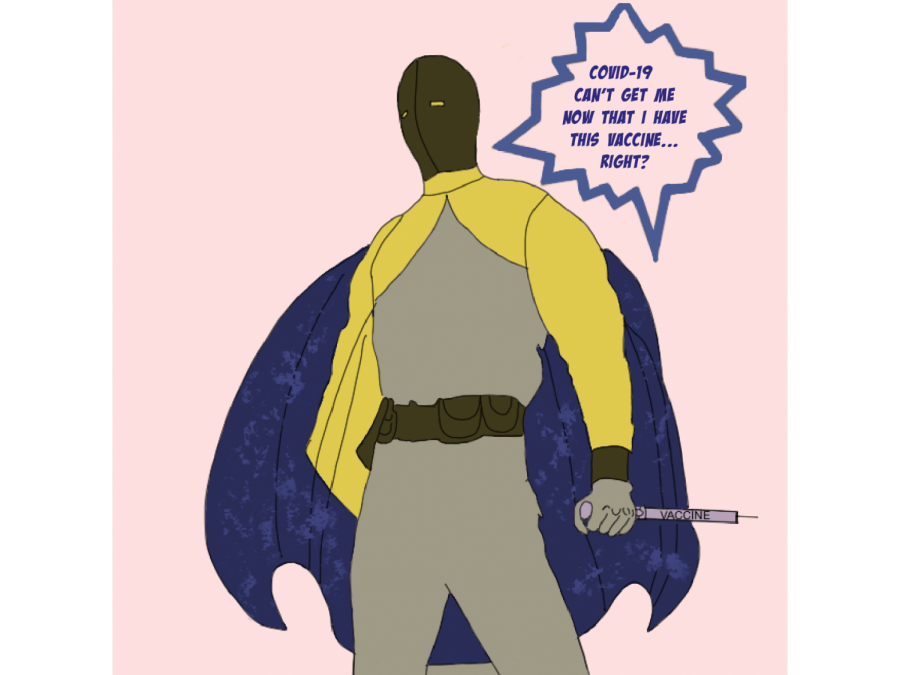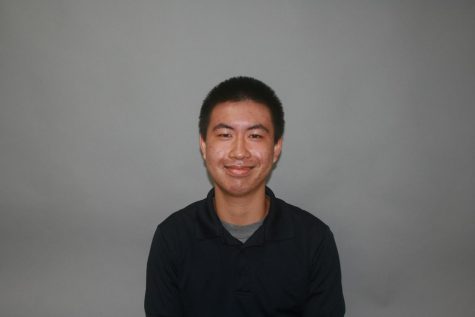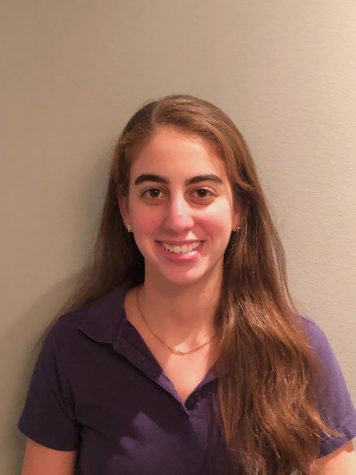Impending vaccine brings cautious optimism to SJS community
Even though people are starting to receive vaccinations, herd immunity is likely still “months away,” according to Medical Advisory Team member Julie Boom.
January 19, 2021
Although most teenagers will not receive a COVID-19 vaccine for months due to limited supply, freshman Mackenzie Rice is already scheduled to receive two doses of the Pfizer vaccine—or a placebo. She signed up in January to participate in Pfizer’s clinical trial for adolescents aged 12 to 15, which she heard about from her mother.
“The vaccine right now is one of the biggest assets we have to turn this pandemic around, but it hasn’t been approved for people under the age of 16,” Rice said. “I joined the trial to help get [the vaccine] approved, and I’m really looking forward to it.”
Other students are also looking into participating in clinical trials. Senior Casey Propst is taking part in a trial held by Moderna—another leading COVID vaccine producer. He received his first of two shots on Jan. 14.
Both the Pfizer and Moderna vaccines have not yet received FDA approval for adolescents. After talking with his mother, a physician, Propst decided to put aside concerns of potential side effects, which include Bell’s palsy, a form of temporary facial paralysis.
“My mom provided me a study from Pfizer that showed there wasn’t a demonstrated link between the Pfizer vaccine and Bell’s palsy, so that’s not something to be worried about,” Propst said. “I expect to feel soreness, though, because that is a known side effect.”
Medical Advisory Team member Julie Boom, who directs the Texas Children’s Hospital Immunization Project, agrees that the Pfizer and Moderna vaccines are safe for teens to take.
“Researchers have combined many years of scientific research on the SARS vaccine and other mRNA vaccines to produce a SARS-CoV-2 (COVID) vaccine,” Boom said.
Because clinical trials show that the Moderna and Pfizer vaccines are 94 to 95% effective against COVID symptoms, St. John’s Medical Director Scott Dorfman advises everyone to take the vaccine when given the opportunity. Dorfman, who is also Co-Director of Wellness as well as a member of the Medical Advisory Team, cautions that scientists are not certain that the vaccines can fully prevent people from carrying the infection and spreading it to others.
“Once you have had both doses of the vaccine, it will be important to continue to mask and socially distance,” Dorfman said. “This will be especially true in the early stages of the vaccination process.”
The expedited emergency authorization process for both vaccines did not allow researchers time to carry out as many studies as they would have liked, thus precipitating the uncertainty.
“It’s a concern we have—we need to prove that after becoming vaccinated, you can’t carry or shed the virus from your nose, throat, nasal secretions and oral secretions without knowing it,” Boom said. “We hope that vaccination makes you completely free of the virus, but we’re not sure yet.”
Having parsed through the scientific literature behind the development of the Moderna vaccine, Casey Propst says he will continue to avoid contact with others because his family, friends, teachers and classmates will not have the same protection that a trial vaccine might provide.
“Even though I have a bit of innate immunity after getting Moderna’s vaccine, I still have the potential to get sick,” Propst says. “Even if I don’t feel symptoms, I still will have that period of transmission where I could potentially be pretty dangerous to the people I really care about.”
Dorfman stresses that everyone should act “cautiously” since the existence of a vaccine does not guarantee the eradication of all cases. Since the number of cases in Houston is currently higher than ever before, Dorfman calls for continued social vigilance.
“We’re all going to need to be careful until the virus is extinct from our environment,” Dorfman said. “Once the measures that we’re taking, most notably the vaccine, have had their maximum benefit in the community, we can start to relax.”
Both Boom and her husband Marc, who is the CEO of Houston Methodist, have both received two doses of the Pfizer vaccine, but they still practice proper protocols, including social distancing and donning facial coverings.
“My family is still picking up to-go items and wearing masks anytime we leave the house or answer the front door,” said Boom. “Receiving the vaccine has not changed my personal behavior, and it should not change anyone’s behavior until our community is starting to approach some level of herd immunity.”
According to Boom, SJS community members “absolutely need to postpone personal social events as much as possible” in the foreseeable future because, even in the best-case scenario, herd immunity—community-wide resistance to the spread of infectious disease through recovery or vaccine—is “months away.”
“We’re just at the cusp of starting to get persons in our population vaccinated,” she said, “but it’s going to take time for more and more vaccine to be produced and for us to move to other populations.”
Dorfman warns against prematurely throwing caution to the wind, even as the prospect of herd immunity draws closer. He says that the return to normalcy will likely occur in bits and pieces.
“I don’t think we’re going to wake up one morning and all be able to run free,” Dorfman said. “We’re going to be walking first, and then we’ll get to run at some point.”
Though he empathizes with many who have “caution fatigue,” Propst advises that everyone curb the desire to socialize in person and respect the sacrifices made by fellow community members.
“It’s imperative, even as people are getting vaccinated, to maintain everything we’ve worked so hard for, Propst said. “Honor the work of healthcare workers and the health of those close to you, continue to wear a mask, practice social distancing and wash your hands.”
Additional reporting by Ethan Kinsella and Cameron Ederle







